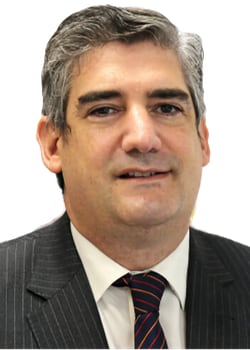 Antonio Alonso Marcos
Antonio Alonso Marcos
Professor at San Pablo CEU University
I
n April 2023, Uzbekistan held a referendum on constitutional reform. These parliamentary elections will serve as the culmination of this transformative process, as all levels of the political system – the President, Parliament, regional parliaments and local assemblies – have gone through a new call to the polls, inviting citizens to actively participate in the country’s politics.
This October 27, the members of the Legislative, the Oliy Majlis, which since 2002 is bicameral, something that became effective with the election in 2005 of the senators, will be elected.
On this occasion, these elections are a logical consequence of the implementation of three proposals of President Shavkat Mirziyoyev: the Strategy of Actions for 2017-2021, the Development Strategy for 2022-2026 and the Uzbekistan-2030 Strategy. With these documents, Uzbekistan seeks to align itself with the best international democratic standards to “ensure a future where prosperity, transparency and the rule of law are cornerstones of the nation’s governance,” as the Central Election Commission states in explaining these elections. It is all about a transition from a more presidentialist model -like that of the USA or Russia- to a more parliamentary one -like that of Spain, Italy or Germany-. Both models are present, as can be seen, in democracies with a long tradition, and each nation chooses its own path, adapting to the new times.
This will be the first time in the country’s history that its members will be elected following a mixed electoral system. Of the 150 deputies, 75 will be directly elected through this majority system, where voters vote for a specific candidate, not for a party, while the other 75 deputies will be elected through a proportional system.
On the other hand, this is a highly digitalized electoral process through the “E-Saylov” platform. All activities of the election commissions and candidates are carried out in this way, which allows to significantly reduce bureaucracy, time and document handling in the election procedures, increasing the efficiency of the process.
In addition, parliament’s oversight functions over the activities of executive, judicial, law enforcement and special services agencies have been expanded, thus increasing transparency and accountability to the public by deputies and also members of the government.
The role of the mayor -hokim-has also been revised and some of his capacities have been transferred to the Local Councils, in a sort of transfer of power from the Executive to the Legislature, making the system more democratic.
The Senate’s powers have also been expanded to include the election of key judicial and government positions, such as members of the Constitutional Court, the Supreme Court, the Superior Council of the Judiciary and the heads of the national anti-corruption and anti-monopoly bodies, on the basis of nominations by the President. The Senate may also consider the nominations for Attorney General and for the President of the Chamber of Accounts and must be consulted on the nominee for the head of the State Security Service.
In this call, at least 40% of its candidates must be women.
In total, 150 deputies (all), 65 senators (out of 100), 65 deputies of the Regional Assembly – JokargyKenes– of the Republic of Karakalpakistan, all councilors of 208 district councils will be elected. Some 30,000 candidates are running, who will be assisted by some 90,000 delegates from the various parties. Some 120,000 representatives of the various election commissions and more than 70,000 observers (national and international) will ensure the fairness of the process.
The parties need 40,000 signatures supporting their participation in order to present their candidates. In this call five political parties are the ones that have passed this filter. Following the ideological spectrum, there would be: a right-wing party, the Democratic Party “Milliy Tiklanish” (National Revival) of Uzbekistan, which focuses on national unity, cultural preservation and national interests, emphasizing Uzbekistan’s strategic goals in the international context; a center-right party, the Uzbekistan Liberal Democratic Party (UzLiDeP), which advocates entrepreneurial freedom, economic independence and reduced barriers to business activities, and supports basic social guarantees such as education, health care and targeted social assistance for vulnerable populations; two center-left parties, the Social Democratic Party of Uzbekistan (“Adolat”, Justice), which proposes a social democratic model that promotes social justice, equality before the law and equal opportunities in education, health and other areas, and the Ecologist Party, which seeks a transition to a green economy, concerned with addressing socioeconomic and environmental challenges, such as the drying up of the Aral Sea; finally, there is the left-wing People’s Democratic Party of Uzbekistan (PDPU), which aims to build a social democratic state aligned with social justice, equality and solidarity, mainly representing socially vulnerable groups.
Uzbekistan is struggling to consolidate its democracy in the midst of an unfavorable international context, as geopolitical tensions affect them greatly, being in a border area with Russia, China and Iran, countries that are forming a solid block against the US and the EU.






